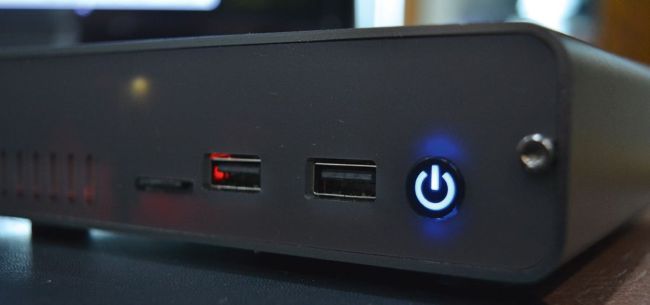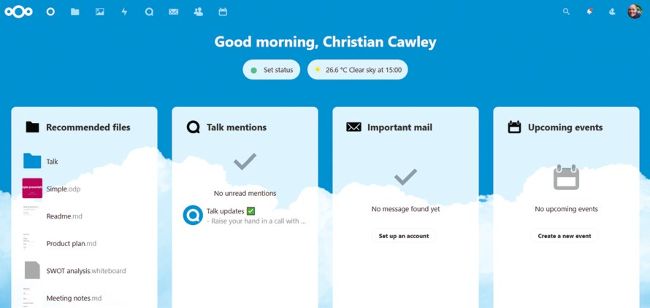Set up a cloud server
Turn your Raspberry Pi into a cloud server
NEXTCLOUD
Christian Cawley has had enough of third-party cloud storage. Is a nextCloud-powered cloud server on Raspberry Pi the solution?
Part One!
Don’t miss next issue, subscribe on page 16!
OUR EXPERT
Christian Cawley was kidnapped by a giant raspberry and forced to write about small computers. Or he fell in love with the Raspberry Pi and enjoys writing about it. Delete as applicable…
S taying in control of your own data is vital. It goes deeper than personal data, too. All of those files and folders in your personal cloud storage with Google Drive, Dropbox, Box, Microsoft OneDrive and many others are subject to various degrees of – let’s say oversight – that you might not be entirely comfortable with.
The solution is to run your own cloud server: a home-based storage system that can be accessed from anywhere. Available 24/7 for syncing data across your devices, mobile and desktop, such a server is best connected directly to your router for reliability. And you can do this with a Raspberry Pi and a suitably sized storage device. While several projects are available for building your own Raspberry Pi cloud server, perhaps the most complete solution is Nextcloud.
If you’re sick of paying for cloud storage or just find the whole idea a bit suspicious, self-hosting your own always-accessible cloud makes sense. With your own hardware and hosted on your own network, the cloud will be completely private. Throw in optional VPN support and even encryption to improve privacy. Selfhosting is also cheaper. For example, a 2TB drive on Amazon is considerably cheaper than the same level of storage with Dropbox or Box.
Rolling your own home-based cloud storage solution will also give you faster speeds. You don’t need to rely on internet connections and put up with online traffic and virtual server bottlenecks. The cloud is hosted on your own network, which means that you can sync data based on your router’s Ethernet or Wi-Fi speed.

Rather than leave a bare Raspberry Pi hosting Nextcloud on a table top, use a case with built in cooling and space for either a SATA HDD or SSD.
Nextcloud solutions
Several cloud servers are suitable for Raspberry Pi. These include own Cloud, Nextcloud and Seafile. You can even do the whole thing from scratch with the Pi Cloud system, installing various server and VPN software to create a barebones cloud solution on Raspberry Pi OS.

With Nextcloud running on your Raspberry Pi you can enjoy a selfhosted cloud storage, collaboration and productivity tool.